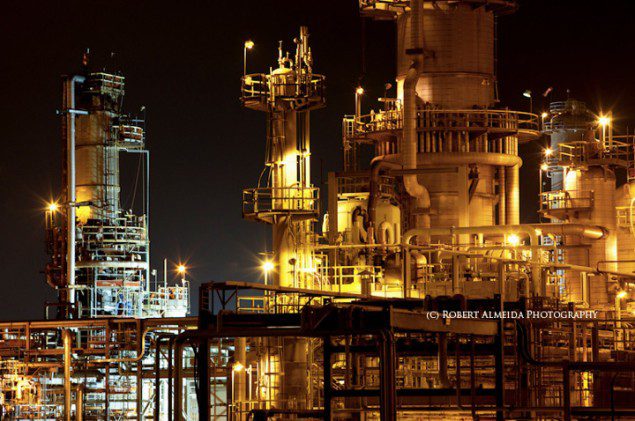More food for thought - I posted this article in June of last year, but it’s probably even more relevant today:
Crude oil production is up 64 percent since 2008 and currently stands at 8.2 million barrels per day, noted Daniel Yergin, Vice Chairman of IHS at a CSIS panel yesterday in Washington, DC.
Yergin, along with Kurt Barrow, Vice President for Oil Markets and Downstream at IHS, Frank Verrastro, Senior Vice President and the James R. Schlesinger Chair for Energy and Geopolitics at CSIS, and Kevin Book, Managing Director at ClearView Energy Partners spoke in front of a packed audience on the topic of crude oil exports from the United States, an issue that has far-reaching implications for the global energy sector, maritime shipping and consumers worldwide.
In 2005, 60 percent of the oil in the United States was imported from overseas, a figure that had far-reaching implications for the United States’ national defense strategy and commercial influence. With the energy renaissance fully underway in the U.S., and imports of crude falling precipitously, the U.S. is becoming a far more influential player in many respects.
Unfortunately, much the oil that is now being produced from the U.S. is light sweet crude, and the refineries that can accept this product are nearly maxed out.
This was not always the case in the past, but as U.S. production fell into decline decades ago, the refineries on the Gulf Coast (PADD III) re-tooled at enormous expense in order to handle imports of sour and heavy grades of crude from overseas.
Making the switch is not so easy and with uncertainty around the possibility of exporting large amount of crude, few if any investment decisions are being made to change anything.
The drillers and the refineries are subsequently tied to each other at the moment in a sort of gridlock, notes Kurt Barrow. Each incremental produced barrel of oil needs to be matched with the same increase in refinery or storage capacity and this has resulted in some fields simply not being produced.
For many Americans, the idea of holding on to resources like crude oil so that excess supply results in lower prices at the gas pump appears to be a myth.
The panel members yesterday all agree that oil prices are influenced by the global market. If the U.S. were to hold on to its crude, the prices will likely fall temporarily due to having a structural oversupply, however the drilling industry – which has a longer investment cycle – will react to this by reducing investment later on.
The result in the end will not necessarily be cheaper gas for U.S. consumers, but likely less jobs, less investment, and less tax revenue.
Lifting the ban on crude oil, notes Yergin, will result in more oil supply available to the world market while creating upwards of 400,000 new jobs domestically and billions of dollars in investment within the U.S.
Kurt Barrow notes that a recently-released IHS report estimates the subsequent addition of U.S. crude to the world oil supply would drive down prices in the U.S. by 8 to 12 cents per gallon, on average. These exports would go to Europe where they would displace crude from West Africa and Russia, as well as to Asia, displacing crude from the Middle East.
For the U.S. maritime industry that is involved with moving light sweet crude oil from PADD III to east coast refineries, or from Alaska to the U.S. West Coast, the affect of allowing crude exports, considering the volume that will soon be available, may not be as significant as some fear. Jones Act-compliant tankers will certainly continue to deliver the crude as the refineries demand it.
Perhaps the biggest question this hasn’t been addressed is, why are we not speaking about new U.S. based refineries?
A new refinery will:
[ol]
[li]Add jobs[/li][li]Result in the need for more Jones Act-compliant tankers to feed them (depending on where the refinery is built)[/li][li]Support U.S. shipbuilding – whether via Jones Act tankers, barges or OSVs[/li][li]Support the domestic drilling and offshore oil and gas industry[/li][li]Enable the U.S. to take advantage of a domestic resource[/li][li]Likely be powered by natural gas and thus will support the growth of the domestic natural gas market[/li][/ol]
Perhaps the refinery discussion isn’t happening because refineries are really expensive, particularly ones built in the United States.
Lifting the export ban on crude prematurely could pave the way for a new refinery to be built in a nearby country, circumventing the Jones Act, and thus removing all the associated benefits.
For U.S. lawmakers, it’s important to tread carefully on this issue and consider all the options.
